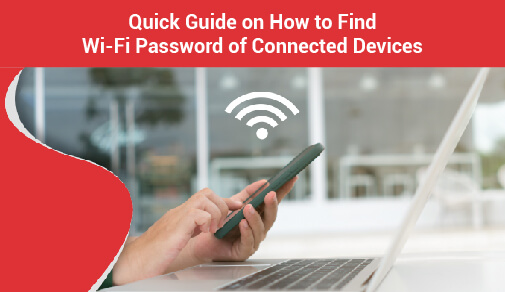Choosing the Right Leased Line Provider: Factors to Consider for Seamless Connectivity
-
1
-
-
5 minutes

Using the internet leased line provider for seamless business operations is a must in today's highly connected world. From cloud computing to VoIP services, data transfer, and video communication, an internet connection that doesn't suffer any breaks or gets interrupted is very important. This is the point at which one needs to consider having an Internet Leased Line (ILL). Knowing what an ILL is and how it compares against other types of connections, as well as choosing a provider, can save you time and effort by ensuring that your business gets reliable leased line broadband plans.
What is an Internet Leased Line & How is it Different?
An Internet Leased Line (ILL) connects two locations through a dedicated fixed bandwidth line used to facilitate private voice, data, and Internet service between the two points. On the contrary, Broadband connections don't offer similar leased line broadband plans at both ends because they have asymmetrical bandwidths. It means that the download speed can be higher than the upload speed in the case of broadband, but not so with ILL.
There is a difference between dedicated line and leased line. Let's see!
Dedicated Connection: To ensure steady transmission even when peak usage hours limit shared broadband lines, ILL maintains exclusive lines for customers' companies only.
Symmetric Speeds: The difference between leased line and broadband is that broadband networks have higher download rates compared to upload ones, while ILL has symmetrical bandwidth offering equal upload/download speeds necessary for purposes such as cloud services, video conferencing, or Voice over IP.
Guaranteed Bandwidth: An ILL provides guaranteed bandwidth to keep your connection speed constant. It helps businesses maintain stable and predictable internet performance.
Service Level Agreements (SLAs): Typically, broadband providers do not offer service level agreements comparable to those offered by ILL providers on uptime, latency, and repair time guarantees.
Factors
Choosing a suitable leased line provider is essential if uninterrupted connectivity has to be maintained. Here are key factors to consider:
1. Reliability and Uptime
Uptime Guarantee: Providers with high uptime guarantees (99.9% or above) should be considered. These are important for any business that relies heavily on internet connectivity.
Redundancy: Check with the provider if they have redundancy measures in place, such as multiple data paths and automatic failovers, which ensures that there is no interruption of service even if one path fails.
2. Bandwidth and Scalability
Current Needs and Future Growth: Determine how much bandwidth you currently need and what your future needs may be. Consider a provider who gives you room to upgrade your network capacity as your company grows easily.
Customizable Bandwidth: You can choose a plan from providers offering customizable bandwidth solutions based on how much traffic you expect.
3. Service Level Agreements (SLAs)
Performance Metrics: Examine potential vendors' SLAs to see what kinds of performance metrics they address, such as uptime, latency, jitter, MTTR, etc.
Penalties and Compensations: Find out whether there are penalties or compensations for failure by the provider to meet the SLAs agreed upon. This gives some level of comfort, knowing there are remedies available in case the services do not perform as expected.
4. Customer Support
24/7 Support: Does the provider offer 24/7 customer support? It is important because, at any time, problems might occur with the internet connection and it assists in reducing downtime.
Support Channels: Learn about response times for various available support channels like phone, email, or live chat service. A responsive customer care team improves experiences considerably.
5. Security
Data Protection: Ascertain the security measures adopted by your vendor to protect your data. This encompasses encryption, firewalls, and regular security audits.
Compliance: Check that the provider conforms to relevant industry standards and regulations, especially if your business deals with sensitive or regulated information.
6. Cost
Transparent Pricing: Look out for transparent pricing structures without hidden costs. Find out what is covered in the charge (installation, equipment, maintenance) as well as any additional fee that may be applicable.
Value for Money: Even though cost is often an important factor, the cheapest may not always be the best. Be mindful of its overall worth, including quality of service, dependability, and supportiveness.
7. Reputation and Reviews
Track Record: Investigate the provider's track record and reputation within the industry. Seek. Customer comments and case studies that can hint at their trustworthiness and performance.
Independent Reviews: Get unbiased opinions on this service provider's quality from trusted platforms through independent reviews and ratings.
8. Installation and Deployment
Installation Time: Ask how long it takes, on average, to install such a line. A quick installation process will save you from prolonged downtime.
Technical Expertise: Ensure your provider's team is competent in terms of installation, minimizing possible problems during deployment.
9. Network Management
Proactive Monitoring: Choose a vendor who provides proactive network monitoring. This would help detect potential problems early before they impact your services.
Management Tools: Determine if there are tools for managing networks provided by the supplier because this will enable you to have more control over your leased line connection's visibility and performance monitoring. These are vital aspects of ensuring high-quality access to internet services at all times.
Conclusion
Choosing act fibernet leased line plans is an essential decision that can significantly influence the productivity of business operations as well as their efficiency levels. By understanding what an Internet Leased Line is, as well as the difference between a leased line and broadband, you will be able to see its advantages concerning reliability, performance, and security. Some criteria to consider when evaluating providers include reliability, bandwidth, SLAs, customer support, security, cost, reputation, installation, and network management. Informed decision-making will ensure that your business enjoys leased-line internet plans, thus enabling you to run it smoothly. Hence being able to compete favourably in today's digital world.







